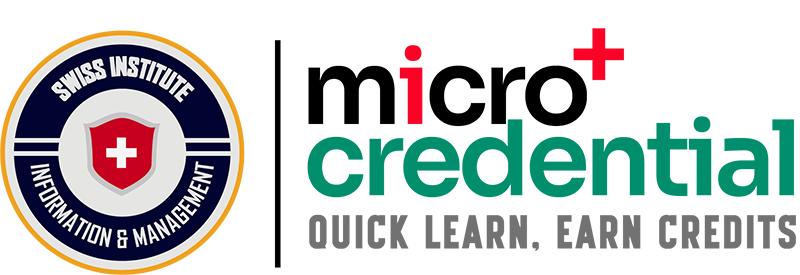Master Award in
Legal Research Methods
Master Award could transfer 20 credits and full tuition fees to Master’s programs by SIMI Swiss.

Master Award in Legal Research Methods
The aim of this award is to allow learners to develop key knowledge, understanding and skills relating to legal research and theoretical and methodological problems associated with legal studies. Learners will be able to cover key topics relating to a research problem, conducting literature reviews, referencing, data collection and analysis techniques, and drawing conclusions from the analysed data.
Could transfer 20 credits and full tuition fee to the Master of International Business Law of SIMI Swiss.
Learning Outcomes:
1. Understand how to conduct legal research.
- 1.1 Identify the criteria required to conduct legal research
- 1.2 Define key issues in the proposed research.
- 1.3 Assess the diversity of research methods used in socio-legal studies.
- 1.4 Evaluate ethical dimensions of socio-legal approaches.
- 1.5 Analyse features of the blackletter approach to doctrinal legal research.
2. Be able to develop legal research approaches.
- 2.1 Choose a relevant legal research project topic.
- 2.2 Create appropriate research aims and objectives with justification.
- 2.3 Formulate a detailed plan for the research project
3. Be able to critically review literature relevant to a legal topic.
- 3.1 Critically analyse different theoretical approaches to a legal research problem.
- 3.2 Create a structured and thorough critical literature review.
4. Be able to design legal research methodologies.
- 4.1 Critically evaluate relevant research methodologies that can be applied to your chosen research topic.
- 4.2 Justify the methodology selected in terms of the research.
- 4.3 Propose suitable techniques to use with quantitative and qualitative data collection and analysis
5. Be able to design legal research methodologies.
- 5.1 Plan a legal research project and present this as a written proposal
- 5.2 Critically evaluate own skills and knowledge, with reference to the intended outcome of the research project
Topics:
- Doctrinal research – researching the law/jury,
- Issues and criteria to conduct a legal research
- Socio-legal studies (exploring decision making of magistrates and juries)
- Ethical dimensions
- Blackletter: focus on case-law, statutes and other legal sources, a pure doctrinal approach makes no attempt to look at the effect of the law or how it is applied, but instead examines law as a written body of principles which can be discerned and analysed using only legal sources. Strengths/Challenges of approach.
- SMART objectives;
- Terms of reference
- Rationale for selection,
- Key milestones,
- Project goals,
- Schedule
- A literature review – piece of academic writing demonstrating knowledge and understanding of the academic literature on a specific topic placed in context. A literature review also includes a critical evaluation of the material.
- Identify existing scholarly knowledge on a particular topic
- Features and ways to do literature review; the generic selection of literature; spotting the sources of literature; justification of an appropriate selection of literature; : the selection of appropriate theories for the research; conceptualisation of the research phenomenon; including relevant theories and the justification of choices; the strength and credentials of relevant theoretical framework; the understanding and interpretation; and developing the theoretical framework.
- Independently locate a range of legal sources within familiar databases and evaluate the suitability of these for a particular research purpose. Locate non-legal sources within a limited range of familiar databases and other resources and evaluate the suitability of these for a particular research purpose
- Research methods e.g. survey, questionnaire, observations; ways to test sufficiency, reliability and validity; definitions of data e.g. primary and secondary sources, qualitative and quantitative; literature search and review – its credibility, use and acceptance; ways to reference sources
- Size and sufficiency of data, reliability and validity of information gathered
- Report format e.g. title, acknowledgements, contents page, introduction, summary of literature review, research methods used, findings, recommendations, references, bibliography, appendices e.g. questionnaires, surveys, referencing e.g. Harvard system, use of bibliography and referencing systems to assure quality of data handling
- Reflection on own research goals – SWOT analysis. Quality issues: the legal and ethical considerations of data management, copyright, reciprocity and trust and conflict of interest while conducting research, use of bibliography and referencing systems to assure quality of data handling.
Indicative reading list
- SCHWEPPE, J. (2016). Legal research methods – principles and practicalities.
- McConville, M. and Hong Chui, W. (2007), Introduction and Overview in Research Methods for Law, Edinburgh University Press
- Bryman, A. and Bell. E. (2007), Business Research Methods, 2nd Edition, Oxford University Press
- Blaxter, L, C Huges & M Tight, How to Research (Buckingham: Open University Press), ISBM: 0-335-19452-4
- Clinch, P. Using law library: as student’s guide to legal research skills (London: Blackstone). ISBN 1-84174-029-2
- Bryman, A. (2008), Social Research Methods, 3rd Edition, Oxford University Press
Entry requirements
To enroll The Master Award, the learner must possess:
- Graduated with a Bachelor’s degree from an accredited university or achieved a Level 6 Diploma according to the European Qualifications
- For a degree from non-recognized universities; The learner should have followed Accreditation of Prior Experiential Learning for Qualifications (APEL.Q) policy of SIMI and/or University Partners.
- Learners must be over 21 years old.
The SIMI Swiss reserves the highest decision-making power for admission whether to accept or not accept after a specific review of each candidate’s profile to ensure that they can comprehend and gain benefits when participating. For the fake university or diploma mills, University Partners shall not be accepted.
English requirements
If a learner is not from a predominantly English-speaking country, proof of English language proficiency must be provided.
- Common European Framework of Reference (CEFR) level B2 or equivalent
- Or A minimum TOEFL score of 101 or IELTS 6.5; Reading and Writing must be at 6.5 or equivalent
After graduating with Master Award, students receive all certified documents from the SIMI Swiss.
Certified Documents:
- e-Certificate from the Swiss Information and Management Institute (SIMI Swiss).
- Hard copy certificate from the Swiss Information and Management Institute (SIMI Swiss) – Optional.
- Accreditation of Prior Experiential Learning for Qualifications (APEL.Q) certified from SIMI Swiss for credit and tuition fee transfer.
Because the program is accredited and recognized, students can easily use certified in the working environment and have many opportunities for career advancement. In addition, in case if you want to study for a SIMI degree or university partner degree, students can convert all credits and the full paid tuition fee when participating in the program University Partners.
The SIMI Swiss’ Master Award means:
SIMI Swiss Master Award is the award at the master level and is equivalent to:
- Level 7 certificate of Regulated Qualification Framework (RQF) of UK
- Level 10 certificate of Scottish Credit and Qualifications Framework (SCQF)
- Level 7 certificate of Credit and Qualifications Framework (CQFW)
- Level 7 certificate of European Qualifications Framework (EQF)
- Level 9 certificates of the Australian Qualifications Framework (AQF)
- Level 7 certificate of ASEAN Qualifications Reference Framework (AQRF)
- Level 9 certificate of the African Continental Qualifications Framework (ACQF)
Students can convert all credits and the full tuition fee when participating in the SIMI Swiss and/or University Partners academic programs if they want to study for an academic degree.
Credits transfer:
Learners can accumulate 20 credits from the Master Award program when participating in the Master of International Business Law program. Please see the credit transfer policy HERE
Tuition fee transfer:
When participating in the Master of International Business Law program, students who have graduated 1 Master Award will receive a discount of full tuition fee which you paid. Please see the tuition fee transfer HERE
The SIMI Swiss micro-credential program allows for the transfer of credits and tuition fees into full degree programs from SIMI Swiss and/or its university partners. SIMI Swiss reserves the right to limit admissions once the number of students exceeds the quotas.
Apply Policy:
- To participate in the SIMI Swiss micro-credential program, students need to meet the entry criteria corresponding to each level. Please see the “Entry” tab for more details.
- SIMI Swiss will not accept applicants if their entry qualifications are from diploma mill universities or schools/universities that are not accredited.
- For Master Award programs, if an entry bachelor is unavailable, students must demonstrate a minimum of 5 years of work experience in the relevant field. Please note that a bachelor’s degree is required for the Master’s program at SIMI Swiss and University Partners so that you could study Master Award but could not move to the Master’s program of SIMI and University Partners.
- English is not a mandatory entry requirement for short course programs, but candidates need to ensure that English is used in reading documents, listening to lectures, and doing assignments. Candidates should note that English is a mandatory requirement when switching to an academic program at SIMI Swiss and University Partners.
Apply Process:
- Choose the program that suits your requirements. Note that applicants without a university degree will not be able to participate in the program at Master’s level, and applicants without a Master’s degree will not be able to participate in the program at the Doctoral level.
- Email your application to support@simiswiss.ch with all the required documents. You could download the application form here.
- Our admission department will contact you and guide you through further processes if the registration documents need to be supplemented.
- SIMI Swiss will issue the Letter of Acceptant (LOA). You wil proceed to the next steps according to the instructions and pay tuition fee.
- SIMI Swiss will issue a student confirmation letter, login account to the e-learning system and related documents.
- You have become an official SIMI Swiss student and enjoy your study journey.
The SIMI Swiss micro-credential program is fully online, allowing you to study anytime, anywhere. You have the option to attend live classes with SIMI Swiss. The final exam will be uploaded to the system and evaluated by the academic panel of SIMI Swiss. Students must submit assignments on time; failure to do so will result in the student being considered to have discontinued the program.
Pricing Plans
Take advantage of one of our non-profit professional certified programs with favorable terms for your personal growing carreers.
- Live Class (Option)
- Full online videos
- e-Books
- Self study contents
- Online tutor videos
- Assignment guide
- e-Certificate
- Hard copy certificate
- Accreditation of Prior Experiential Learning for Qualifications (APEL.Q) certified from University Partners for credit and tuition fee transfer
- Accreditation & Recognition certified from University Partners
- Deliver hard copy certificate and all certified documents to your home
- Transfer full credits & tuition fees to equivalent academic programs
- Get more support tuition fees and scholarships when becoming University Partners' international students
- (*) In the event that you receive a scholarship or discount, the fee you should transfer is the amount you actually paid.
SWISS MICRO CREDENTIAL
Contact us
If you interested this micro credential course, please feel free to contact with us! Please note that this program is a not for profit and learning with full online model.
